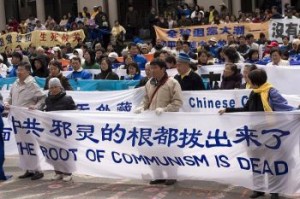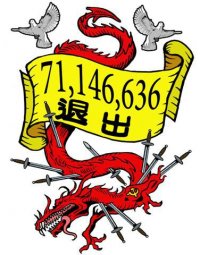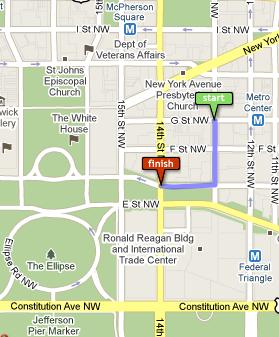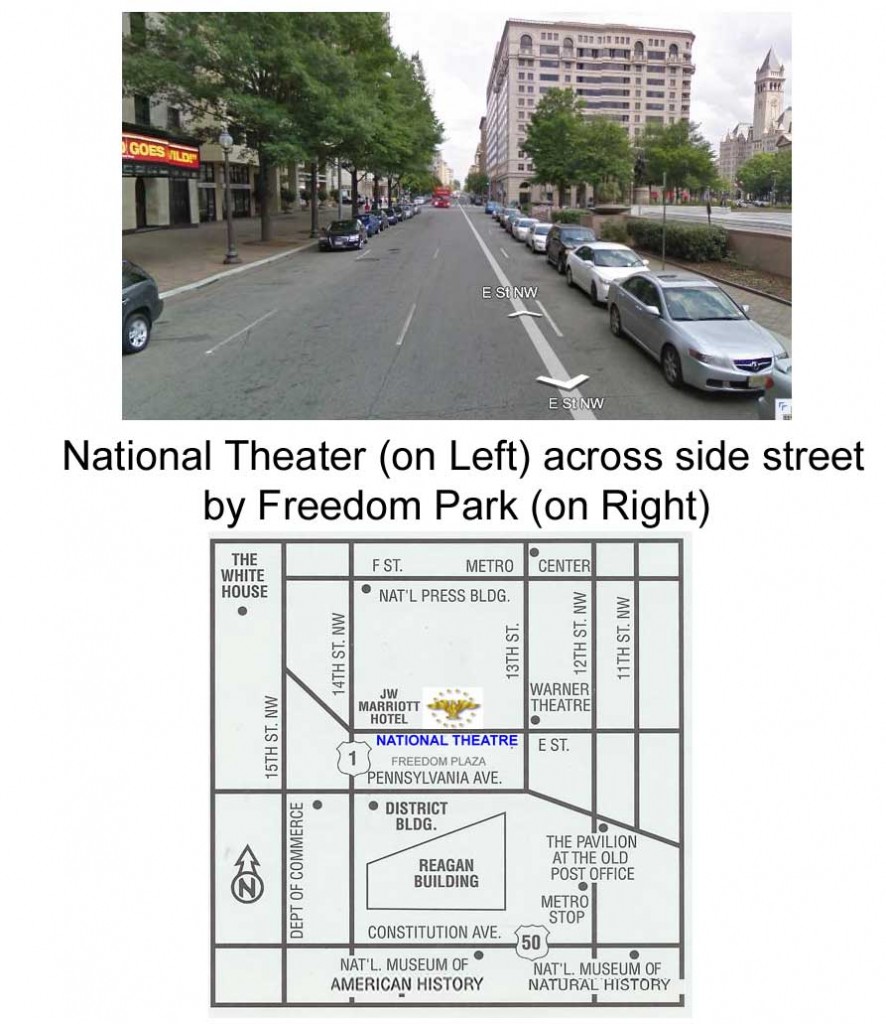On April 11, 2010, supporters of human freedom will join together at Washington DC’s Freedom Plaza to recognize the growing movement of Chinese citizens in the People’s Republic of China (PRC) that have left the Chinese Communist Party (CCP), as their rejection of Communist totalitarianism. The movement known as the Tuidang and Quit CCP movement states that over 71 million Chinese people have chosen to leave the CCP since December 2004.
Chinese-Americans and their supporters will gather at the Washington DC Freedom Plaza, which is located on Pennsylvania Avenue NW, between 13th Street and 14th Streets NW. from 2 to 4 PM on Sunday, April 11 to recognize and show solidarity with the Chinese people that seek to embrace freedom.
The Tuidang movement or “Quit the Party” movement has seen an increasing wave of resignations from those that now publicly reject Communist totalitarianism in the PRC. The Tuidang movement calls upon the Chinese people to resign their memberships in the Chinese Communist Party (CCP), so that Chinese people in the PRC will have an opportunity for political and human freedom. Resignations include the statement that “I declare that I solemnly denounce the Chinese Communist Party and its affiliated organizations.”
On its Facebook page, Tuidang states that “As of 06/04/10 [April 6, 2010] – 71,146,636 people have submitted statements withdrawing from the Chinese Communist Party or its affiliated organizations. Those who are current members of the CCP or its affiliated organizations are with these statements resigning their membership; former members use these statements to sever all association with these organizations. All are renouncing the CCP totally.” The “Quit CCP” web page states that this number of those resigning from the CCP continues to grow. The “Quit CCP” web site also lists the individual statements of some of those who have resigned from the CCP. In challenging Communist totalitarianism, the Epoch Times reports on “Nine Commentaries” that justify the reason for Chinese people leaving the CCP.
In February 2009, Epoch Times reported that 50 million Chinese people had resigned from the CCP. In January 2010, Responsible for Equality And Liberty (R.E.A.L.)’s Jeffrey Imm met with Chinese freedom fighter Lisa Tao at a Chinese cultural event in Philadelphia, Pennsylvania and she told him that she was daily calling up people in China and giving them the courage to resign from the CCP. As of January 2010, R.E.A.L. reported that “Quit CCP” stated that 66 million had resigned from the CCP.
On January 5, 2010, NDTV reported that a former CCP director, Zhang Kaichen, came to America and publicly resigned from the CCP, stating: “”Today I am reborn. I come across the ocean, and solemnly declare to the world that, from today on, I will make a clean break from the evil Chinese Communist Party.” NDTV reported that “Zhang Kaichen is the former Director of the Liaison Branch of the Propaganda Department of the Shenyang CCP Committee in China’s Liaoning Province.”
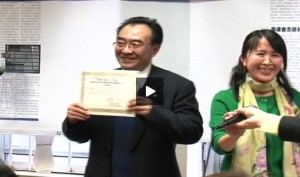
January 2010: Fomer Chinese Communist Party Official Zhang Kaichen Resigns from CCP in America (Photo: NDTV)
Now the Tuidang and “Quit CCP” web sites state that, as of April 2010, over 71 million had resigned from the CCP. Chinese Americans and their supporters seek to show their solidarity in America’s capital, Washington DC, on April 11, 2010, to let those continuing to struggle against Communist totalitarianism that they stand in unity and in support of their efforts.
Rally Logistics:
— Date: Sunday, April 11, 2010
— Time: 2 to 4 PM Eastern Daylight Savings Time
— Location: Freedom Plaza, Washington DC, 20004 – on Pennsylvania Avenue NW between 13th and 14th Streets NW
The Freedom Plaza in Washington DC is named in honor of Martin Luther King, Jr., who worked on his “I Have a Dream” speech in the nearby Willard Hotel. In 1988, a time capsule containing a Bible, a robe, and other relics of King’s was planted at the site.
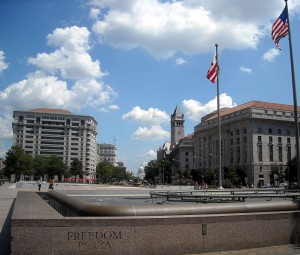
Freedom Plaza - Washington DC - 14th and Pennsylvania Avenue NW - Site of April 11 Rally for Chinese Freedom
Directions:
— Map Showing Location of Freedom Plaza in Washington DC
— Street Level Photographic View of Freedom Plaza Area
— Washington DC Metro Subway Stop: Metro Center (Central Station – for Red, Blue, Orange Lines)
— Washington DC Metro Subway Planner Tool
Walking Directions for Metro Center Subway:
— Metro Center Metro Station to Pennsylvania Ave NW & 14th St NW:
1. Exit station through 13TH ST NW & G ST NW entrance.
2. Walk approx. 1 block S on 13th St NW.
3. Turn right on Pennsylvania Ave NW.
4. Walk approx. 1 block W on Pennsylvania Ave NW.
— Parking lots: the nearby National Theater reports the following parking lot areas include:
— PMI
— 1220 E Street, NW – Enter on E Street between 12th and 13th Streets
— 424 11th Street, NW
— 1325 G Street, NW – Enter on G Street between 13th and 14th Streets
— QUICK PARK
— 1301 Pennsylvania Avenue, NW – Enter on 13th Street between E and F Streets
— Freedom Plaza is an open air plaza which is in front of The National Theater, whose address is 1321 Pennsylvania Avenue, NW, Washington, DC 20004. Directions to Freedom Plaza are essentially not much different than going to the front of the National Theater (National Theater driving directions, street map of area, parking directions, Metro directions).
Additional Resources:
Report on April 11 Rally in Google-based Simplified Chinese Language Translation
Tuidang Web Site – Chinese Language
Tuidang Facebook Page – English Language
Quit CCP Web Site – English Language
Nine Commentaries on CCP – English Language
January 5, 2010 – NDTV: Former Chinese Official Renounces Communist Party Membership
January 4, 2010 – R.E.A.L. Report on Philadelphia Chinese Cultural Event and Quit CCP Movement
October 21, 2009: An underground challenge to China’s status quo – by Caylan Ford
July 20, 2009 – Tuidang campaign is most successful civil rights movement in China
Communist China: Newspaper Suspended for Showing Anti-Communist Party Slogan on Front Page
R.E.A.L. Postings on Totalitarianism
January 15, 2010 – R.E.A.L. Report on Shen Yun: Performing for Human Rights and Freedom in China
——————————————————————————————————————————————–
Christian Science Monitor Commentary: An underground challenge to China’s status quo
As Obama plans his visit to China in November, he should pay attention to the Tuidang movement. It shows that the Chinese people understand human rights and civil liberties.
By Caylan Ford
posted October 21, 2009 at 12:00 am EDT
Washington —
The lead image on the Sept. 27 edition of the Jinzhou evening newspaper was hardly unusual. In anticipation of the 60th anniversary of Communist Party rule in China, it featured a street lined with enormous red flags beating in the wind.
It would have been nearly indistinguishable from any other Chinese state-run newspaper that day but for one important detail. In the bottom left corner of the photo, scrawled on a bike rack, were eight tiny but clearly visible characters: “Heaven condemns the Communist Party; denounce it and be blessed.”
Similar writings that dare to challenge the divine mandate of China’s rulers appear regularly across China, hanging as banners in city parks, posted on Internet forums, or handwritten on paper bank notes. It is all evidence of a movement that has silently swept the nation. Called Tuidang, which translates simply as “withdraw from the party,” the movement encourages people to publicly renounce their membership in Communist organizations. The implications are manifold. This is the first time since the 1980s that China has seen such a large, organized dissident movement – if an underground one.
The day after the image ran, the Jinzhou newspaper came under investigation by the government. Its website was shut down, and the paper taken out of circulation.
The incident represents a fitting analogy for the state of the Communist Party today. Beneath the pomp and power lie resentment, discontent, and questions. In 60 years of Communist rule, China has endured political and social upheaval that have left deep psychic wounds.
But in the country’s totalitarian climate, the people have few avenues to openly discuss their country’s history or to make peace with their own role in it. Since China has not had its opportunity for truth and reconciliation, its citizens are finding their own ways to do this.
Perhaps that explains the extraordinary appeal of the Tuidang movement, which organizers say has more than 60 million participants. It began in late 2004, when New York-based Chinese dissident newspaper DaJiYuan (Epoch Times, affiliated with the spiritual movement Falun Gong) ran a series of polemic editorials detailing the history of the Communist Party in China.They also proclaimed that the country would not truly be free or prosperous until it was rid of the party, which, it argued was at odds with China’s cultural and spiritual values.
Millions of copies of the articles found their way into mainland China through e-mails, faxes, and underground printing houses. Some Chinese readers say the articles finally confirmed what they suspected all along – about the Great Leap Forward, the Tiananmen massacre, the Cultural Revolution. This offered recognition that their memories were real and their suffering was shared.
But despite appearances, this is not a political movement in the conventional sense. Unlike the student movement of 1989 or the more recent Charter 2008 manifesto – both of which embraced the language of Western democracy – the Tuidang movement employs distinctly Chinese language and meaning. More Confucian than humanist, it often makes its points by drawing on Buddhist and Daoist spirituality.
Denouncing the party is thus not simply political activism, but takes on spiritual meaning as a process of cleansing the conscience and reconnecting to traditional ethics and values.
In December 2004, one month after the articles were published by the dissident newspaper, its editors starting receiving statements from readers declaring their wish to disavow membership in the Communist Party, the Communist Youth League, or the Young Pioneers, sometimes after their memberships had technically expired. Today, statements representing some 60 million people have been sent to the newspaper, which posts them to an online database.
The authenticity of the declarations is impossible to independently verify. Most people sign them using aliases to protect their safety, and there are no provisions to prevent fraudulent postings.
But the numbers are really not the point. For those who do send in their statements disavowing the party, the postings offer a rare platform to vent frustrations, discuss ideas, share stories of suffering, or find forgiveness.
Many relay tales of personal victimization under the Communist Party. Take, for instance, Ding Weikun, a 74-year-old veteran party member from rural Zhejiang Province. In 2003, his town’s government colluded with private developers to seize the land of local farmers. The farmers protested, Mr. Ding wrote, and armed thugs were brought in to suppress them. “I witnessed the killing and injuring of dozens of villagers, on the spot,” he noted. The old man tried to pursue justice by appealing to the local government, but he was arrested and sentenced to prison by the very party that he had served for 40 years.
While some write of their personal suffering, others speak of their crimes. For them, withdrawing from the party is about seeking absolution.
“I have always thought that I was a good man, but looking back I realize that I had gradually lost myself,” wrote Xiao Shanbo, a former party member from China’s northeastern Liaoning Province. “My mind and heart slowly became corrupted. I declare invalid all the words and deeds I have done in the past. These were decisions that I made out of ignorance due to the lies and propaganda of the [Communist Party].”
Mr. Xiao never specifies his crimes, but closes his posting with a plea for forgiveness: “God, please give me this chance! I have gone through much arduous soul-searching, and I intend to change my ways and make up for what I have done.”
The Communist Party has reacted to the phenomenon with predictable disdain. Terms related to the movement are among the most vigorously censored on the Chinese Internet, and at least 71 people have been imprisoned for possessing movement literature or propagating its spread. That means that, if found, the activist who vandalized the bike rack in Jinzhou city will be in serious trouble.
The party may have good reason to be anxious. For decades, its power has relied on an ability to censor information, control public memory, and suppress dissenting views. The statements of participants offer a rare glimpse and great insight into the sources of discontent in China.
The Tuidang movement also shows the manner in which Chinese people understand human rights, civil liberties, and democracy, and how they might reconcile these ideas with a more traditional Confucian worldview. It could perhaps even serve as a precursor for another democracy movement.
But one way or another, the movement certainly challenges the popular view that most Chinese people are satisfied with the status quo. As President Obama prepares for his November visit, it is reason to consider engaging more with the Chinese people, and not only with their government.
Today, as more and more Chinese citizens are remembering their past, they may well change China’s future, too.
Caylan Ford is a master’s degree candidate in international affairs at The George Washington University, where she studies Chinese politics and international security. She is currently writing a thesis on organized dissent in China. She is also a volunteer analyst at the Falun Dafa Information Center and was a staff writer for Epoch Times until 2007.
[Editor’s note: The original version did not give the English name of the referenced newspaper or the affiliation. Additional information about the author has also been added.]
